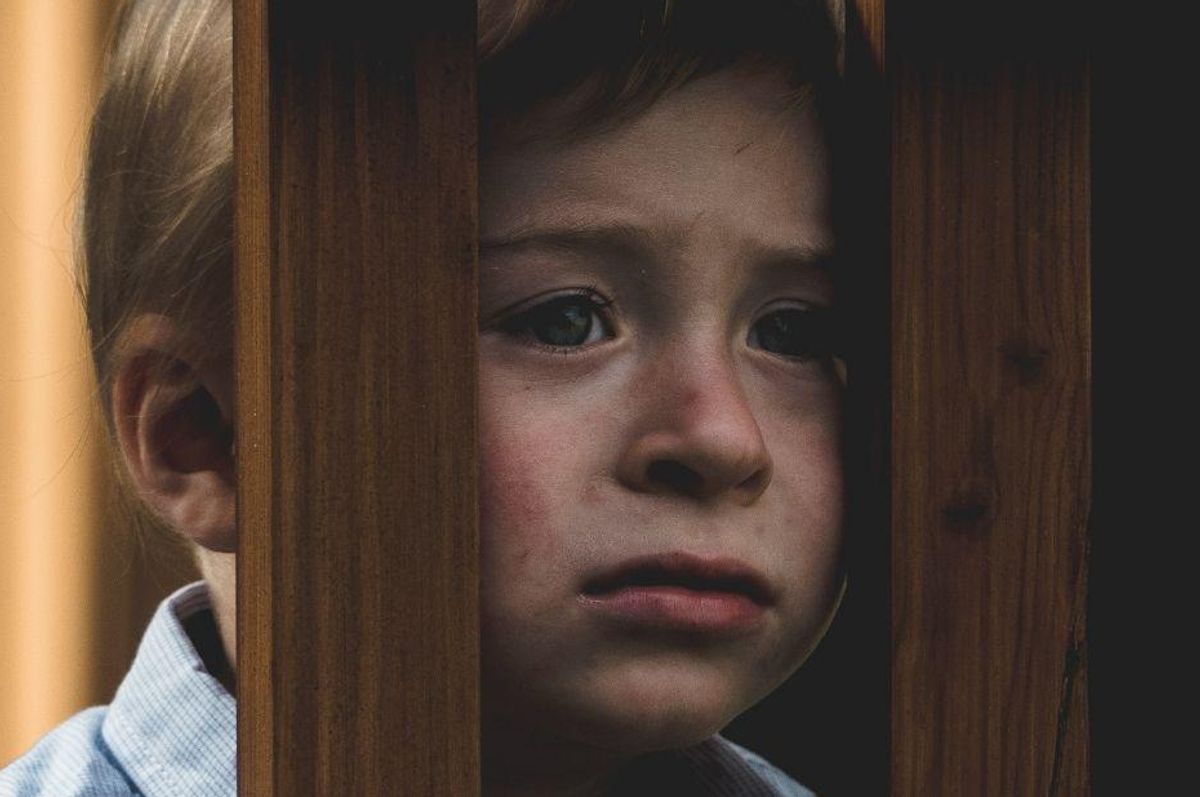Wales just made spanking illegal, joining more than 60 countries that have outlawed corporal punishment

Parents can no longer spank, slap or shake their children according to a new law in Wales.
Parents in Wales can no longer spank, slap, hit or shake kids, according to a new law outlawing all physical punishments for children. According to The Guardian, corporal punishment had been included as "reasonable punishment" in England and Wales since Victorian times, but that defense no longer applies.
"Until now, children were the only group in our society who it was acceptable to strike in certain circumstances," Viv Laing, the policy and public affairs manager at the National Society for the Prevention of Cruelty to Children (NSPCC) Cymru Wales, told The Guardian. "We don’t allow the physical punishment of adults or animals, so it is absurd that we have for so long with children.”
But not everyone is happy with the law.
Some conservatives expressed concern that the law would lead to a "Stasi culture" in which citizens become informants and turn in their neighbors to law enforcement for parenting choices. But Deputy Minister for Social Services Julie Morgan rejected the notion. “We don’t want people spying,” she said, before adding, “Looking after children is the responsibility of the whole community.”
The law, which applies to both residents of and visitors to Wales, is being hailed as "historic" by the Welsh government. But Wales is hardly the first country to outlaw corporal punishment. In 1979, Sweden became the first nation to make striking a child illegal, and since then, more than 60 other countries have followed suit.
The countries that banned spanking first are regularly rated among the happiest on Earth.
Any time the topic of spanking comes up in the U.S., some people defend the practice as being not only acceptable, but preferable. The adage "spare the rod, spoil the child" (which many people think comes from the Bible—it doesn't) is still alive and well in certain circles, and advocates of corporal punishment claim it's necessary for children to learn what's right and wrong and to exercise self-control. Some are quick to blame everything from disrespect to disobedience to criminal behavior on society's move away from spanking.
But if we look at the countries that outlawed corporal punishment decades ago, those fears of bad behavior and criminality run amok appear comically unfounded. The Nordic countries of Sweden, Finland, Norway and Denmark are pretty much always in the Top 10 lists of happiest nations, and they were four of the first countries to outlaw corporal punishment. They are also in the Top 10 list of safest nations ranked by perception in U.S. News and World Report, so clearly a lack of striking children for misbehaving has not led to some kind of mass societal downfall in those nations.
(For comparison, the U.S. ranked No. 38 on the safest nations by perception list and No. 19 on the happiest nations list. According to the nationwide American Family Survey, nearly half of Americans believe that “it is sometimes necessary to discipline a child with a good, hard spanking.” Correlation isn't causation, of course, but these numbers indicate that spanking kids is not the key to a happy, safe society.)
Research shows that spanking affects the brain in the same way as more severe forms of abuse.
It was one thing to spank kids when people didn't know better and just followed whatever they'd been taught, but we now have the ability to study and research the effects of parenting choices. The research has repeatedly led to the same conclusion: Spanking isn't good for kids.
For instance, a 2021 Harvard study found that spanking can alter a child's brain development in the same way that more severe forms of abuse do.
"We know that children whose families use corporal punishment are more likely to develop anxiety, depression, behavior problems, and other mental health problems, but many people don't think about spanking as a form of violence," said senior researcher on the study, Katie A. McLaughlin. "While we might not conceptualize corporal punishment to be a form of violence, in terms of how a child's brain responds, it's not all that different than abuse. It's more a difference of degree than of type."
On top of that, spanking doesn't even appear to work as intended. In the majority of studies analyzed in a review, children's behavior actually worsened after physical punishment with external negative behaviors including aggression, antisocial behavior and disruptive behavior at school increasing over time.
We need to make sure parents are educated about parenting methods other than spanking.
However, if parents who feel that spanking is necessary are to be convinced otherwise, they need to be given tools for parenting. Too many people see spanking as discipline and everything else as permissiveness, which simply isn't the case. There are plenty of ways to raise respectful, contributing humans without hitting them. (For those who don't consider spanking as "hitting," try articulating the difference. Is it not hitting if you're hitting a child on the bottom? Why does that part of the body count any less than their arms or legs or backs or heads?)
There are plenty of alternatives to spanking, but parents may not have the knowledge, experience or support they need to figure out other methods of discipline. Outlawing corporal punishment might be a good way to get parents to stop striking their children, but we need to make sure parents are educated about what to do instead. Perhaps providing parents with free parenting classes throughout their children's childhoods would go just as far, if not further, than merely outlawing spanking and slapping children as a form of punishment.
Writing it into law, however, is a good way for a society to express the importance of children's rights and to impress upon parents the need to find nonviolent ways to interact with and teach their kids.
- The science of spanking: What happens to some spanked kids when ... ›
- Psychologist explains the generational trauma behind spanking and ... ›
- Spanking can alter kids' brain development the way more severe ... ›
- Study shows that spanking is harmful to a child's mental health - Upworthy ›
- What are some bad parenting trends? - Upworthy ›
- Mom shares how she realized that spanking is 'lazy' and 'horrible' - Upworthy ›
- Old-school paddle photo sends Gen X memories reeling - Upworthy ›




 We've learned a lot about dinosaurs in the past 40 years.
We've learned a lot about dinosaurs in the past 40 years. 

 The opening ceremony in Athens, Greece during the 1896 OlympicsBy Unknown author/Public Domain
The opening ceremony in Athens, Greece during the 1896 OlympicsBy Unknown author/Public Domain An Olympic medal from 1896.By Unknown author/Public Domain
An Olympic medal from 1896.By Unknown author/Public Domain
 A man applying for a job on a tablet.via
A man applying for a job on a tablet.via
Mom is totally humiliated after her kindergartner tells the teacher what she does for work